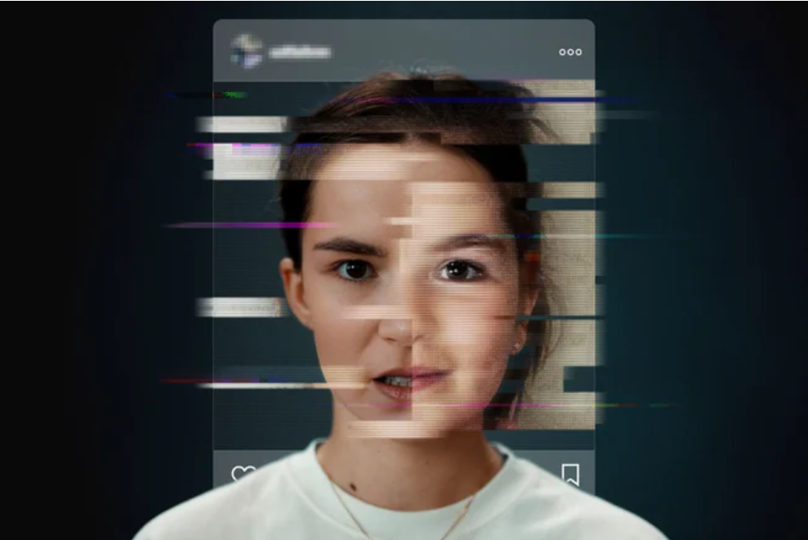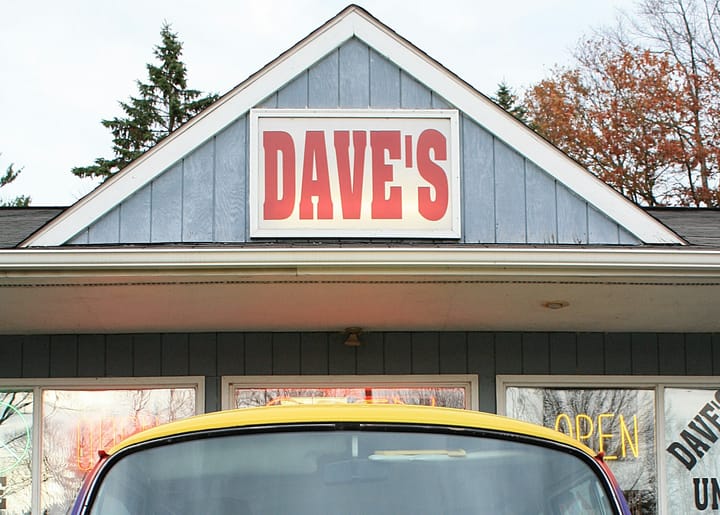Deutsche Telekom uses deep fake video to warn of the dangers of 'sharenting' plus... 5 more innovative deep fake campaigns.
A snapshot look at a trending campaign with a curated pick of past campaigns that use a similar creative approach in some way.

#ShareWithCare | Deutsche Telekom | adam&eveBerlin
Deutsche Telekom and adam&eveBerlin collaborated to create a deepfake video that serves as a cautionary tale about the dangers of "sharenting" - the practice of sharing children's photos on social media. The campaign aims to raise awareness about the potential risks of identity abuse in the future. The video features a digitally aged girl warning her parents about the dark consequences of sharing her personal information online. Studies predict that by 2030, two-thirds of identity fraud cases will stem from parents sharing their children's data online. Deutsche Telekom emphasizes the security of its network and its expertise in handling online data safely as a solution to this problem. The campaign, titled #ShareWithCare, advocates for a more mindful approach to sharing images of loved ones.
Unmasking The Keanu Romance Scam | Home Equity Bank | Zulu Kilo Alpha | 2023
Romance scams accounted for the second highest monetary losses due to fraud in Canada in 2022, with the Canadian Anti-Fraud Centre reporting a staggering $59 million defrauded from 1,056 victims.
To tackle this issue head-on, Home Equity Bank (HEB) in partnership with its agency Zulu Kilo Alpha has launched a new online series, "Unmask the Scam." This educational initiative not only exposes the deceptive nature of online relationships but also humorously clears the name of Canadian actor (and all-around good guy) Keanu Reeves, who has been falsely associated with these scams.
Through three fun episodes, a digitally simulated Keanu unveils the inner workings of three distinct scams: the Keanu Romance Scam, the Real Estate Scam, and the Tech Support Scam. HEB, as a bank exclusively serving Canadian retirees, has made it a priority to educate its clients about fraud prevention, given that retirees are often targeted by scammers. This campaign feels like a fantastic start.
The Missing Person Reporters | The Mirror Foundation | BBDO | 2021
While the use of Deepfake technology is controversial, The Missing Person Reporters project shows that it can be a force for good with technological applications that can benefit society. By modifying the faces of news reporters to resemble missing persons, this campaign enabled fo the first time for a missing person to be reported by the missing person themself. This helped increase the visibility and memorability of missing persons, which ultimately helped in their safe return.
#StillSpeakingUp Deep Truth | Reporters Sans Frontieres | Publicis | 2021
Mexico’s drug cartels are known across the world, but perhaps a lesser-known fact is that more than 120 journalists have been killed since 2007 for investigating the crimes of these cartels. Propuesta Civica and Reports Sans Frontieres (Reporters Without Borders) united to raise awareness and to drive change to protect the freedom of the press through a hard-hitting message from a dead journalist. But how? By using Deep Fake technology, they brought Javier Valdes, a murdered journalist, ‘back from the dead’ to deliver a powerful message to Mexico’s president. After all, he can speak out now because the worst has already happened to him. The hard-hitting video resulted in 349 million organic impressions. A Twitter account was also created under Valdes’ name to provide an anonymous platform for journalists to share their investigations safely.
The Noble Speech | Womanity Foundation | TBWA\RAAD | 2021
In the male-dominated field of science, female scientists have long been overlooked, with their achievements often credited to male colleagues. This has resulted in their exclusion from Nobel Prizes, denying them rightful recognition.
To shed light on this unfairness, TBWA\RAAD and The Womanity Foundation used technology to resurrect forgotten female scientists, allowing them to deliver their own unique, deserved, and long-awaited "Noble" speeches. By utilizing CGI and deep-face algorithms, the team recreated the scientists' faces and incorporated their own words and quotes from various sources. The campaign launched on the International Day of Women and Girls in Science and garnered over $1,600,000 in earned media coverage, raising awareness and inspiring young girls to pursue scientific careers across the globe.
Toxic Influence | Dove | Ogilvy
Two out of three girls spend over an hour daily on social media, surpassing the time they spend with friends. This excessive exposure to harmful beauty trends, tips, and products has been linked to a concerning increase in depression and teenage suicide. Yet the algorithms that deliver toxic beauty advice to teenage girls present their parents with very different content on the same platforms. In response, Dove's Self-Esteem Project partnered with Ogilvy to address this issue by leveraging deepfake technology. They created a thought-provoking film that inserted the words of toxic influencers, commonly heard by teenage girls, into the mouths of their trusted mothers. The campaign video, which highlighted 50 toxic trends, generated over 115 million organic views and beyond 3 billion impressions.



